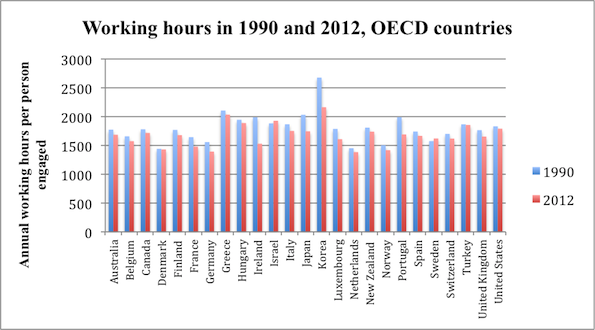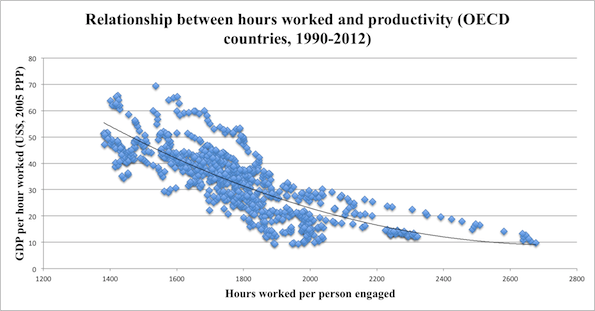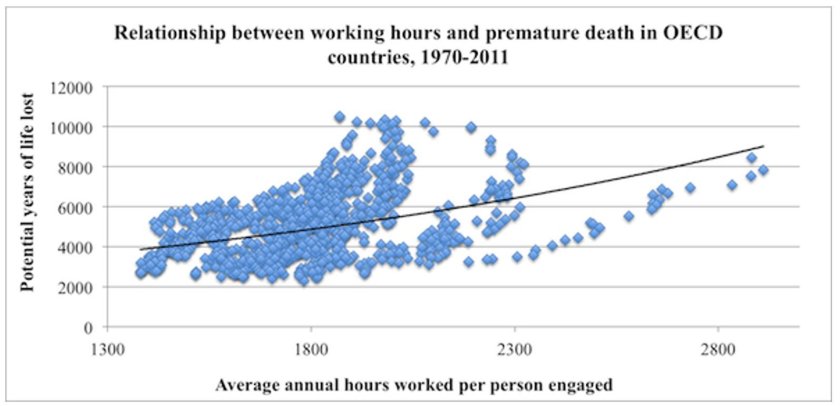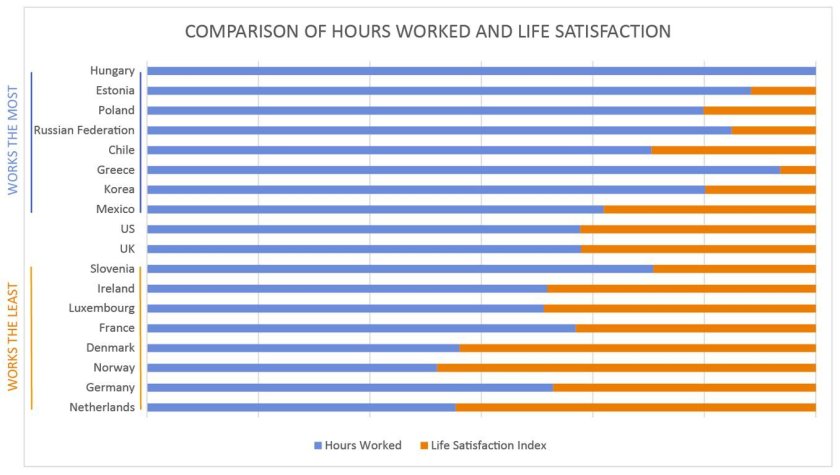On average, U.S. workers with jobs put in more hours per year than workers in most OECD countries. In 2012, only Greece, Hungary, Israel, Korea, and Turkey recorded a longer work year per employed person.

A long work year is nothing to celebrate. The following chart, from the same Economist article cited above, shows that there is a strong negative correlation between yearly hours worked and hourly productivity.

More importantly, the greater the number of hours worked per year, the greater the likelihood of premature death and poor quality of life. This reality is highlighted in the following two charts taken from an article by Angus Chen titled “8 Charts to Show Your Boss to Prove That You Can Do More by Working Less.”


In sum, we need to pay far more attention to the organization and distribution of work, not to mention its remuneration and purpose, than we currently do.
This post originally appeared on Sociological Images, a Pacific Standard partner site, as “Overwork and Its Costs: The U.S. in International Perspective.”




